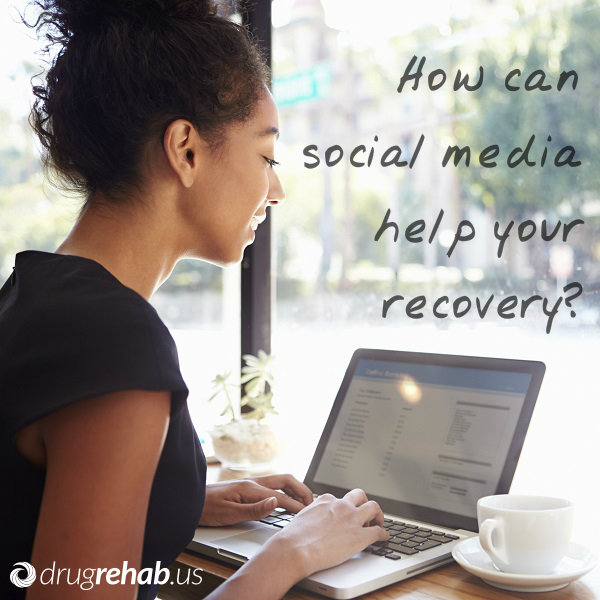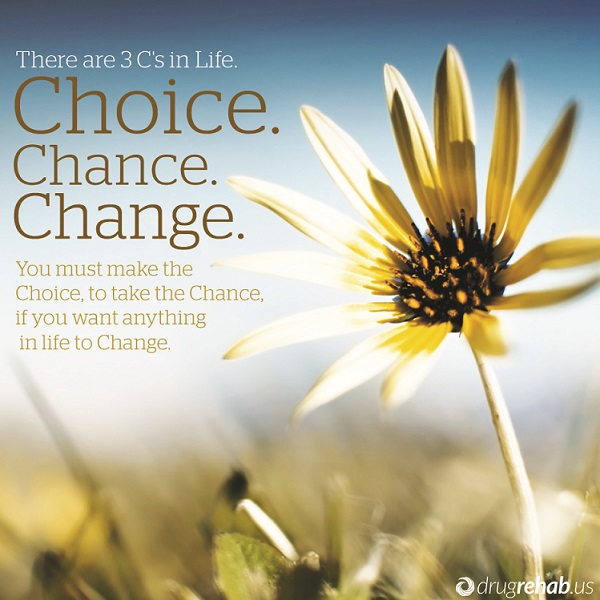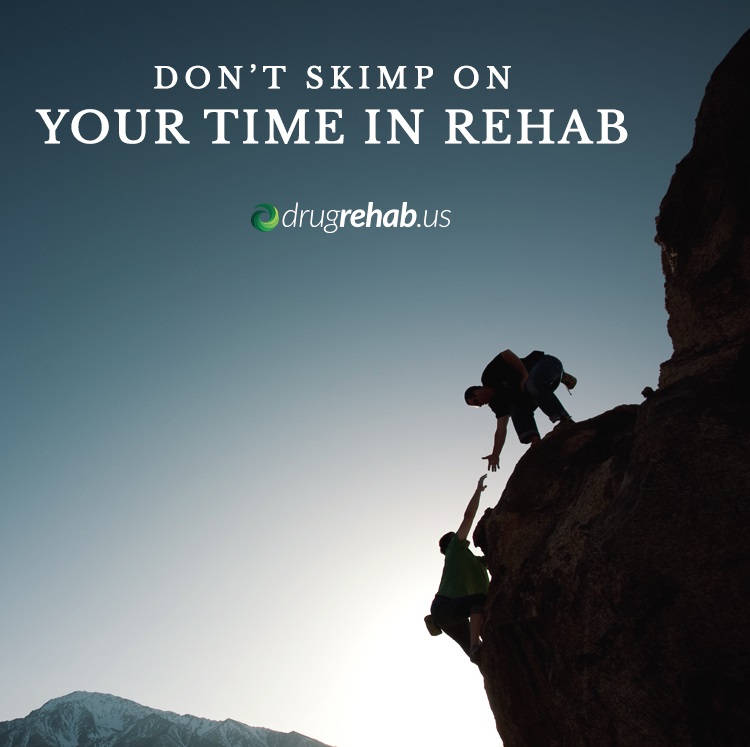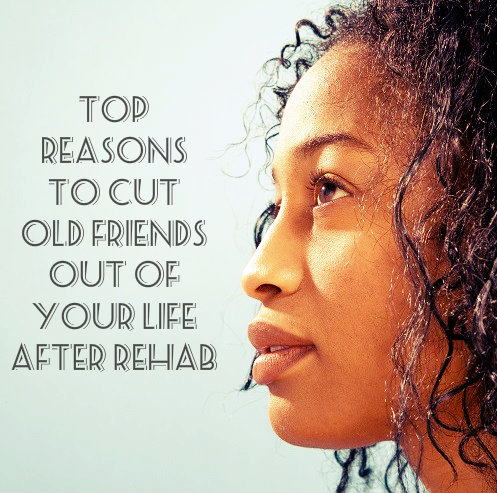25 May 2015
Can You Get Sober And Stay Sober Alone?
You’re determined to get over your problem with addiction. You’ve had enough of the horrible way alcohol and/or drugs are making you feel and the damage you are constantly doing to the people you love. You have lost jobs, relationships and maybe your reputation because of your drinking and drugging. You might even have some health concerns caused by addiction.
People are encouraging you to go to a treatment center. You want to stop your self-destructive tendencies but you don’t want to go anywhere. You are sure that you can quit any time you want to and you’re just about ready to prove it. You don’t believe you need anybody to show you how. You just need to stop using alcohol and drugs.
Powerful Hold Of Addiction
 It’s the great delusion of almost every addict or alcoholic that he or she has the freedom to choose to quit. The truth is that once you are addicted, it’s highly unlikely that you will be able to discontinue using your drug of choice without help. Drugs and alcohol are physically and mentally addicting. Mind-altering substances create a compulsion to continue their use even when they are destroying you.
It’s the great delusion of almost every addict or alcoholic that he or she has the freedom to choose to quit. The truth is that once you are addicted, it’s highly unlikely that you will be able to discontinue using your drug of choice without help. Drugs and alcohol are physically and mentally addicting. Mind-altering substances create a compulsion to continue their use even when they are destroying you.
The reason you can’t quit has little to do with lack of willpower. Drugs cause chemical changes in the brain that lead to craving. You are compelled to keep repeating the experience of getting high even when all the important things and people in your life are slipping away. It’s true that you may be able to quit for short periods of time, but you can’t seem to stay stopped. You are compelled to keep returning to a life of active addiction.
Why You Should Ask For Help
Getting sober requires much more than simply making up your mind that you want to quit. Withdrawing from certain chemicals, including alcohol, can be dangerous and possibly even life-threatening, and should usually be done under medical supervision. Getting through withdrawal is only the beginning. Once you have safely detoxed from chemicals, you have to learn a whole new approach to life and you will need the help of others to do that.
Up to now you’ve been in the habit of running from problems and uncomfortable emotions. With the help of other people, you can learn to cope with the stressors of life without turning to chemicals.
Having the help of people who share their experiences of living a sober life with you will make your journey much easier than it will be if you try to figure everything out on your own. When you go to meetings and reach out to others in recovery, they can tell you the mistakes they have made along the way as well as the things they have learned that have worked.
Remaining Vigilant To Recovery
The best way to get sober is to have the help of others to get through detox and early sobriety. As time passes, it’s equally important to remain connected to others on an ongoing basis and to remain aware that there is always the possibility of relapse.
Even though you’ve broken the cycle of daily habitual use of your drug of choice, you may find that you suddenly experience the compulsion to pick up a drink or a drug after you’ve been sober a while, and this may happen when you least expect it.
Addiction can be compared with other relapsing diseases such as diabetes or heart disease. There is no graduation date and no point at which you are cured. You have to keep doing whatever it takes to stay sober, and that includes going to meetings and staying connected to other people.
Recovery from drugs and alcohol is definitely possible, and in most cases, successfully recovering on a long-term basis is done by surrounding yourself with other people who truly understand.
Your support network can include a sponsor, friends both inside and outside of recovery circles and possibly counselors or addiction professionals. Those who follow the 12 steps of recovery believe that there is strength in numbers and are aware that each of the 12 steps includes the words “we” or “us.” Together we can do what none of us can do alone.
Discover 5 Tips To Understand Addiction And Quit Unhealthy Habits!
16 Mar 2015
How Social Media Can Help You In Recovery
If you use social media sites like Twitter, Facebook, or Instagram, you know that they help you connect with friends old and new, family living far away and new people you’ve never met. What if these sites could be more than just a way to pass the time when you’re waiting in line or a distraction when you should be working?
Social Support And Recovery
 Experts and ordinary people alike have long known that socializing with other humans is beneficial. Social support, whether in the form of having family to rely on, a close group of friends or just peers who share similar experiences, improves your health in a number of ways.
Experts and ordinary people alike have long known that socializing with other humans is beneficial. Social support, whether in the form of having family to rely on, a close group of friends or just peers who share similar experiences, improves your health in a number of ways.
Socializing reduces stress. It also provides a group of people who can offer help when you need it. You repay the favor by helping your friends and family when they need it. Support groups for addiction recovery have been in use for decades for these reasons. Relying on other people helps to strengthen recovery and prevent relapse.
Social Media As Social Support
If you are in recovery, you may already belong to a support group in the real world. Maybe you have a sponsor and go to meetings once a week. There is more you can do to reach out to and engage others, especially with access to technology. Social media support groups are more common now than ever and include groups ranging from traditional alcoholic and drug use support to compulsive gambling and even sex addiction support. Whatever your issue, you can find a support group for it.
Here is how that online group can help you and your recovery:
- Keep you connected – Do you remember what it was like to leave rehab? To go from that place of full support and constant connection to a new life as a sober person? It was pretty scary, but if you could stay connected with the people you came to know and care for in your program, your transition will be easier.
- Provide stability – Support groups in the real world are great and shouldn’t be replaced, but they aren’t always stable. People come and go from these groups and sometimes the groups fall apart altogether. Online social groups are easier to maintain and people can connect quickly to check in without needing to go to a meeting. This can mean a more stable social group over time.
- Share achievements – After a really bad day, you resisted going to the store for a bottle of wine. Instead of going to bed feeling exhausted and alone, get online and share your experience with your social media support group. Get the encouragement you need to face the next day.
- Get and give encouragement – There is nothing like the instant connection you get on social media. If you need some words of support but your next support group meeting isn’t until tomorrow and your sponsor isn’t answering the phone, your social media group can be a lifeline. Even better, you can be there for someone else who needs you in the moment.
- Stay engaged – It’s much easier to turn to an online group than to pack up and head out to a face-to-face meeting. While you should still push yourself to go to meetings, a social media support group can be a great way to keep you engaged in your recovery.
Social media sites have their downsides. They can be distracting and offer up some pretty meaningless content. But if used in a smart way, these sites can provide you with recovery support that may make the difference between continued sobriety and a relapse.
Read Our Other Posts On Relapse Prevention Tips!
Every recovering alcoholic or addict knows that each day of sobriety is a reprieve from active addiction. Active addiction is a chronic illness that may ultimately kill you. If you are an addict, you know that to drink or drug is to die.
Living life sober can be full of many challenges that can sometimes threaten sobriety. When faced with a diagnosis of terminal illness, the battle to stay clean and sober, no matter what, intensifies.
Personal Story Of John Eggers’ Terminal Illness Positively Redefining His Life
John Eggers, a 48-year-old attorney from Irvine, CA was diagnosed with glioblastoma, an aggressive form of brain cancer. There is no cure for his cancer, and the prognosis is poor. Without treatment, he would have approximately three months to live. With treatment, doctors predict his remaining life expectancy is 12 to 15 months. Experts say that less than 10 percent of glioblastoma patients survive five years after diagnosis.
 His symptoms came on suddenly one day after a trip to the gym. He lost feeling in his limbs and couldn’t speak. He suffered a seizure. A brain tumor was discovered, and he learned that he had a terminal form of cancer.
His symptoms came on suddenly one day after a trip to the gym. He lost feeling in his limbs and couldn’t speak. He suffered a seizure. A brain tumor was discovered, and he learned that he had a terminal form of cancer.
Eggers has been video blogging his final months of life for KTLA while he shares his experiences and checks things off his bucket list. Some of the items he has already been able to do include meeting Vice President Joe Biden, traveling to Europe and skydiving. He has also appeared on a TV show and met his favorite band, Depeche Mode. Living with terminal illness, Eggers is redefining his life.
Eggers admits that before his illness, he led a life driven by self-centeredness and not much regard for others. Faced with his own death, that has all changed. John has raised funds for families of others with cancer, and he has worked pro bono to help families of sick children stand up to insurance companies.
Trying To Escape Reality Through Opiate Addiction
Recently he was given opiates for pain but began abusing them to cope with depression and anxiety. Not many people would blame a dying man for wanting to escape from reality. But if you’re in recovery, you know that abusing drugs doesn’t make problems go away. It only postpones them or creates new ones.
In a recent video blog, he stated, “My name is John Eggers and I am a drug addict.” John decided to check into a treatment facility to beat his addiction, because he knew the drugs could kill him before the cancer did. As he pursues a life free of drugs, John hopes to be a powerful example to other addicts who are battling cancer.
And he wants to die drug-free.
Choosing Sobriety No Matter What
Eggers describes his addiction as “a very dark place,” a place beyond the comprehension of most people. He says the fact that his lifespan is short is acceptable to him, but that what isn’t acceptable is wasting any more of the time he has left on opiates or other drugs.
Newly out of treatment, Eggers continues to document his journey and his struggles. One side of his face is paralyzed since brain surgery, and at times he has difficulty choosing words as he speaks. But his desire to be clean and sober is unwavering.
The natural reaction for a drug addict or alcoholic when faced with extreme stress is to turn to chemicals, and there isn’t much greater stress than being faced with your own death. If you’re an addict, turning to mind-altering substances is not bad behavior. It’s doing what comes naturally. But it’s possible to recover from addiction to drugs, and John is making that choice today. Choosing recovery is making a conscious choice to go against the natural urge to use and abuse drugs and alcohol. No matter what.
In the case of John Eggers, he is choosing sobriety in spite of a death sentence, and he is using his final days to carry the message of a drug-free life. He hopes to inspire others through his video blog. If he can stay sober while he is facing a great deal of pain and his own mortality while he journeys through the dying process, others can stay sober too—no matter what they are facing.
YOU CAN DO THIS!
01 Dec 2014
Don’t Skimp On Your Time In Rehab
Getting treatment for drug addiction is the only way to heal from this terrible disease. If you or a loved one is struggling with drug abuse, treatment guided by caring professionals is essential.
 It is also important to understand that the disease of addiction is chronic. Like other chronic diseases, high blood pressure and diabetes for instance, addiction needs continuous treatment over a lifetime. You can never be cured of your addiction, but you can learn to manage it.
It is also important to understand that the disease of addiction is chronic. Like other chronic diseases, high blood pressure and diabetes for instance, addiction needs continuous treatment over a lifetime. You can never be cured of your addiction, but you can learn to manage it.
If you are thinking of going to rehab, know that the time you spend there will set you on your path to lifelong sobriety. It is important to spend enough time during this initial phase of treatment learning how to live a sober life.
Whatever you do, don’t skimp on your time spent in a good and caring rehab facility. Research shows that the best outcomes result from at least 90 days spent in residential or intensive outpatient care.
Why You Should Consider A Long Stint In Rehab
Here are several reasons you should consider a long stint in a good rehab in order to heal:
- Get past detox – Detox, that time when drugs leave your system and you get beyond withdrawal, can last longer than you think. Detox is important, but by the time it’s done, you may find you have limited time to work on actual treatment if your stay in rehab is only 30 days. Going through detox is hard, but it isn’t the part of rehab that helps you learn to be sober.
- Learn new habits –Your addiction is a habit. Your brain has learned a habit of regular drug use. In order to change those habits and learn new ones, you need time. You are going to rehab to learn how to have an entirely new lifestyle. You must take your time on this or your new healthy habits will not take root.
- Heal your brain – Your drug use has caused actual changes in your brain. It is possible to reverse those changes, but it takes time. Research has shown that in brain scans of patients receiving treatment, positive changes are still occurring up to three months after starting treatment.
- Work on relationships – The main goal of rehab is to heal and to overcome your addiction, but there are many other things to work on if you have the time. Your addiction has probably wrecked several of your relationships, for instance. If you spend enough time in rehab, you can work on repairing those.
- Treat mental disorders – Many people who struggle with addiction are also battling mental illness, whether they know it or not. Spending enough time in rehab will give your treatment professionals a chance to diagnose and treat any co-occurring disorders. When you recognize and treat mental illness you have a better chance at being successful at sobriety and living a more enjoyable life.
- Step down treatment – If you can afford the time to do so, your rehab should be followed by a step down in care. This means going from residential rehab to a sober living house or to intensive outpatient care. Doing so allows you to begin to practice your new habits and skills while still having the support and treatment of caring professionals. Going cold turkey from rehab to real life can be a shock and may lead to relapse.
Long-Term Rehab For Life-Long Sobriety
Rehab is an important step toward becoming sober and you should not skimp on it. If you are able to take the time away from work and family, spend as much time in rehab and step down treatments as necessary to help you be successful in your new, sober lifestyle.
Discover How To Choose The Right Drug Rehab For Yourself Or Your Loved One!
Many of us have long known that time spent in the great outdoors is restorative and healing. Studies are now proving that there are powerful mental, emotional and physical health benefits to spending time outside and being immersed in nature.
If you are recovering from a drug or alcohol addiction, add outdoor time to your to-do list. Camping, hiking or even just a stroll in a city park will do amazing things for you and, when you feel better, you strengthen your sobriety.
The Benefits Of Being In Nature For Recovery

Make a change and get outside more often. Doing so will give you numerous health benefits. It will help you stay sober as you find new meaning and satisfaction in your life.
Being outdoors means being more active. When you are more active you will be physically healthier. You will be stronger and may even lose weight. When you feel better you will be less likely to give in to urges to relapse. Perhaps even more important to your long-term sobriety are the mental health benefits of the great outdoors. Research has found that walking outside regularly can reduce the severity of depression. Being in nature also reduces feelings of stress, anger and anxiety; it drops blood pressure and helps improve memory and focus.
How To Add More Nature To Your Life
Spending more time in nature could be as simple as sitting outside in your backyard in the evening or going for a walk around your neighborhood instead of watching television. Here are some other easy ways you can get back to nature:
- Go for a walk – Going for a walk will give you the dual benefits of being in nature and getting exercise. If you can, find a place to walk that is as removed from human development as possible. A state or national park is a good choice, but if you can’t get to one, a city park works. Even just a walk around your neighborhood can be helpful.
- Start a backyard garden – Work on your yard or garden to get back to nature. Just weeding a flowerbed in the yard can be restorative, but you can aim bigger too. Try starting a vegetable garden. It will require regular maintenance and will get you outside often. As an added bonus, you’ll have plenty of fresh, organic produce.
- Enjoy the view – Research suggests that just looking at a nice, peaceful and natural view can be enough to give you positive health benefits. If you are not in a position to exercise or go for a walk, find a nice park bench with a pretty view and take it in.
- Take kids to the park – If you have kids, turn of their devices and take them out to play. This will benefit both you and the kids. You will all reap the rewards of spending time outside, getting exercise and, best of all, spending quality time together.
Nature is a powerful force for good and too many of us have become disconnected from it. As a recovering addict you stand to benefit immensely from spending time in the great outdoors. Replace a few of your TV shows or some of your smartphone time with a trip outside. You won’t regret it.
Learn More About Interesting And Unique Types Of Alternative Drug Treatment Programs!
17 Oct 2014
The Benefits Of A Sober Living House
Sober living refers not just to being sober, but also to a safe house in which to live soon after receiving treatment for addiction. A sober living house was once called a halfway house—a halfway stop between rehab and being on your own again. The idea of a sober living house is that you live in a home that gives you some level of support and treatment for your addiction while letting you work toward greater independence. You live surrounded by others in the same situation and receive the benefits of mutual support. If you are getting treatment for addiction, consider the benefits of a stay in a sober living house.
What Is A Sober Living House?
 A sober living house is a sober environment in which recovering addicts live after receiving some type of intensive treatment. Patients may live in a sober house for up to a year. Most people come to stay in one after going through a 30- to 90-day rehab treatment program.
A sober living house is a sober environment in which recovering addicts live after receiving some type of intensive treatment. Patients may live in a sober house for up to a year. Most people come to stay in one after going through a 30- to 90-day rehab treatment program.
The sober living house provides an environment that is completely free of drugs and alcohol. Most do not include formal treatment, but there may be a therapist on call or regular 12-Step meetings. The level of structure varies, but some sober living houses include skill-building lessons, such as learning to balance a budget, looking for a job and maintaining good social skills.
The Social Support Of Sober Living
The drug- and alcohol-free environment is an obvious benefit of sober living. Rules in these houses are strict, which means that residents can count on not being near drugs or alcohol. A less obvious benefit is that of social support. Research tells us that social factors are a crucial element of successful addiction recovery. Recovering addicts that have a strong social support system are more likely to be successful over the long term.
In a sober living house you have a built-in social network. Your roommates are also in recovery and you have the opportunity to support and help each other stay sober. Many houses include support group meetings, but even without them, you are surrounded by people who have the same goals and needs that you do. Those who are further along in recovery often support new residents.
Sober Living Provides A Transition Into The Real World
Going directly from rehab to living back at home, going to work and socializing with family and old friends can be a rocky transition to make. It can be abrupt and unforgiving. One day you are fully supported in a safe environment, and the next you are expected to go back to normal life, except without abusing substances. This is where many addicts end up relapsing.
A great benefit of a sober living house is that you get a smoother transition back into the real world. The sober living house is less structured and less secure than your rehab facility, but it still provides some safeguards that you wouldn’t have at home. In a sober living house you can slowly learn how to re-enter society as a sober person. You can take the time to develop new skills and to find out who you are sober.
A sober living house is a great place to spend your early recovery. The bumpy road from rehab to home again can be made much smoother by the safety and security you can find in one of these homes. If you are recovering from an addiction, consider spending some time in a sober living facility.
09 Oct 2014
Why You Need To Ditch Old Friends After Rehab
Peer pressure is a powerful force. The need to conform to the crowd and go along with what seems normal is a natural part of being human. We know it from experience and we know it from scientific research.
If you have worked hard to get through rehab, get sober and are determined to stay sober, you have to make important life changes. One of those changes is getting rid of old friends.
In fact, having a strong support group is crucial to your recovery. But, if any one of your old friends is still using or doesn’t fully support your sobriety, it’s time to say goodbye.
Reasons To Cut Old Friends Out Of Your Life After Rehab
Here are the best reasons to make the difficult choice to cut old friends out of your life:
- Old friends will try to tempt you with false memories of happier times. The truth is that while you were using, your life was in the toilet. Some of your old friends, however, will try to convince you that life was better then, that you had more fun and were fun to be around. The reality is that these friends don’t want to live in the toilet alone. They want someone to justify and validate their lifestyles. Don’t listen. They are wrong and you are better off sober.
 Putting yourself in high-risk situations will cause you to relapse. It just makes good sense, but research has also proven this fact. Recovering addicts are far more likely to relapse if put into risky situations. These include being around people who are using drugs or alcohol. Facts don’t lie. If you surround yourself by people who use, you are more likely to use as well and to undo all the hard work you put into your recovery.
Putting yourself in high-risk situations will cause you to relapse. It just makes good sense, but research has also proven this fact. Recovering addicts are far more likely to relapse if put into risky situations. These include being around people who are using drugs or alcohol. Facts don’t lie. If you surround yourself by people who use, you are more likely to use as well and to undo all the hard work you put into your recovery.
- Your old friends do not have your best interests at heart. If you have an old friend who is still using, his daily motivations for nearly everything he does revolve around his addiction. Every choice he makes, and how he interacts with people, is related to his need to drink or use drugs. This means that, even if he sounds like he is supporting you and cares about you, your well-being is low on his list of priorities.
- Poor support will cause you to relapse. Another finding from research about addiction and relapse is that support is crucial to staying sober. One of the leading factors in people who go back to using after treatment is a poor support system. Friends from your past do not constitute a strong support system. You need people who truly care about you and your health and well-being. These are friends and family members who are sober enough to care.
Recovering From Addiction? Put Yourself First
Overcoming addiction is a huge challenge. By getting help, going through rehab and working to avoid a relapse, you have already put in a huge portion of the work. Now you just need to live your life as a sober person and resist those nagging urges to use again. They will lessen with time, but there are few things more detrimental to your resistance than old friends.
If you abused drugs or drank too much with someone in the past, those habits will be even more difficult to resist when you are around him. If these friends really do care about you they will understand that you can’t be around them.
Put yourself first, stick with your sober support group and learn to make new friends. You won’t regret it in the long run.
28 Jan 2014
Will I Always Be In Recovery?
Recovery is an important word for addicts. The word implies a process. When you are in recovery, you are working toward a goal. That goal is to never use again, to remain sober, to avoid relapsing. A process also implies that there is an end point, that at some time you will be fully recovered. Is that really possible or is recovery a lifelong state of being?
Is Addiction Really A Disease?
 Thanks to years of research, we are finally beginning to better understand drugs, how they affect the user, how they change the brain, and what addiction really is. It turns out that addiction is a disease of the brain, and a chronic one. Like any other chronic disease (asthma, diabetes, heart disease, arthritis), addiction will keep returning if left untreated.
Thanks to years of research, we are finally beginning to better understand drugs, how they affect the user, how they change the brain, and what addiction really is. It turns out that addiction is a disease of the brain, and a chronic one. Like any other chronic disease (asthma, diabetes, heart disease, arthritis), addiction will keep returning if left untreated.
Some people still cling to the idea of addiction as a matter of willpower only, but the truth is that drugs change your brain. This means that giving up drugs becomes a difficult process requiring professional treatment. While people being treated for diseases like arthritis and high blood pressure are in recovery, so too are addicts going through the treatment process. If someone with high blood pressure stops taking his pills, his symptoms will return. If a drug addict stops seeking treatment, odds are he will start using again.
Is It Possible To Be Recovered From Addiction?
Research shows that drugs change your brain, both chemically and physically. The more you use and the longer the duration of use, the more changes will occur. Research also shows that these changes can improve with abstinence from drugs, but that they may never fully reverse. Addiction forever changes you, which means that being completely recovered may never be possible.
It may sound hopeless, but take strength in knowing that the longer you stay sober, the easier it becomes to resist the urge to relapse. Although your brain may not completely recover from drug use, it comes very close. Studies show, for instance, that when a meth user abstains for just 14 months, her brain returns to a near normal state. From that point on, avoiding relapse becomes monumentally easier.
How You Can Help Yourself And Others In Ongoing Recovery
It may seem like being recovered is a goal for which all addicts should strive. If you are recovered, all your problems are over, right? For the addict, the word recovered is a dangerous one. If you believe you are recovered, you might believe that you are not vulnerable to relapse. A recovering addict always carries that possibility. Even an addict who has been sober for decades could relapse and hit rock bottom again.
Being forever in recovery may seem daunting, but it protects you from becoming too relaxed about your addiction. It also gives you a reason to be continually improving yourself and your life. Always striving toward being a better and healthier person is a great way to live. Most people become stagnant in their lives. You, however, have the opportunity to be always bettering yourself.
Use your recovery as a tool and a process for becoming a better person. As you resist the urge to relapse, improve your life in other ways as well. Use activities like volunteer work, your career or spending time with loved ones as ways to be a good person, and to be successful in recovery. Turn to exercise, healthy eating or spirituality to make your life better and to stay clean. You may never fully recover, but you will always be in the process of living your life to its greatest potential.
Read More About Starting Your Life Over In Recovery


